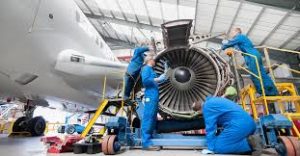
Mathew Amaechi
The Warri Refining and Petrochemicals Company Limited (WRPC) has resumed operations, marking a significant milestone in Nigeria’s quest for domestic refining capacity. This development is expected to massively crash petrol prices across the country, according to reports.
According to the Nigerian National Petroleum Company Limited (NNPCL), the 125,000 barrels per day (bpd) Warri Refinery in Delta State has commenced operations, following the recent restart of the 60,000 bpd-old Port Harcourt Refinery in Rivers State.Industry experts predict that the resumption of operations at the Warri Refinery will lead to a further reduction in petrol prices.
Mustapha Zarma, National Operations Controller of the Independent Petroleum Marketers Association of Nigeria (IPMAN), stated that the increased competition in the downstream oil sector will force prices down.”We commend the government and NNPC for making sure that the Warri refinery has started operating. We encourage them to ensure all three refineries operate efficiently. With this development, we believe the market will be driven by demand and supply, leading to a further drop in fuel prices,” Zarma said.
NNPCL also announced plans to export refined products to foreign countries, generating foreign exchange and bolstering Nigeria’s economy. This move is expected to strengthen the country’s energy security and improve its economic prospects.
Farouk Ahmed, Chief Executive of the Nigerian Midstream and Downstream Petroleum Regulatory Authority (NMDPRA), emphasized that the resumption of operations at the Warri Refinery will drive down petrol prices. Ahmed attributed the achievement to President Bola Tinubu’s determination to push the regulator and NNPC to come onstream.
Mohammed Shuaibu, Secretary of IPMAN, Abuja-Suleja, welcomed the development, stating that it will reduce the demand for dollars to import fuel, positively impacting Nigeria’s foreign exchange reserves.With the Warri Refinery now operational, Nigeria is one step closer to achieving its goal of becoming a net exporter of petroleum products.
As the country’s refining capacity continues to grow, Nigerians can expect a significant reduction in petrol prices and a boost to the national economy.

